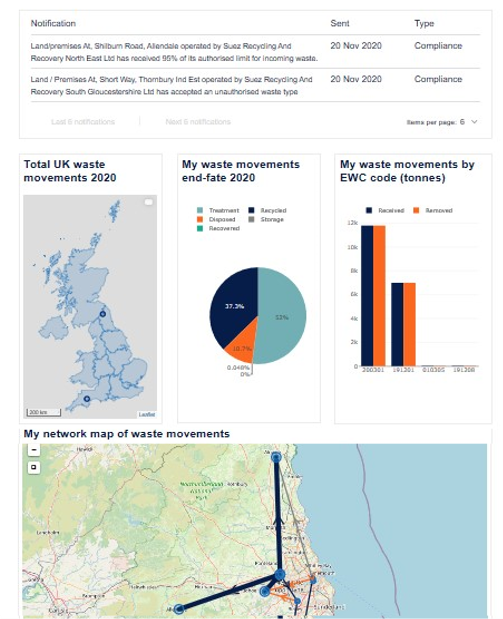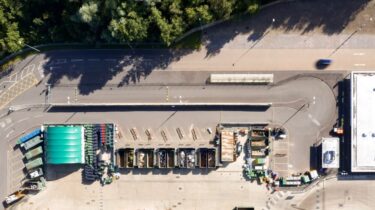Home – Case Studies – Vastum Tool for Transforming Waste Management
The Situation
Many nations struggle with the environmental impact of waste management, facing challenges such as waste crime, sustainability concerns, and the need for accurate data to drive policy and the circular economy. Traditional, paper-based waste tracking systems yield unreliable data, hindering countries, including the UK, from effectively managing waste.
Our Solutions
Vastum, an award-winning digital solution, addressed the challenges of national waste tracking. This end-to-end system, designed by Anthesis, digitally recorded waste movements, from production through waste management processes to final destination for reuse, recycling, recovery, or disposal. By leveraging existing infrastructure, Vastum reduced administrative burdens on businesses, enhancing data quality and consistency. It generates high-quality, granular data crucial for environmental protection, policy development, and investment.
Flexibility
Vastum could be accessed by anyone with an internet-connected device, from a mobile phone to companies operating sophisticated software systems. Data could be entered before, during, or after the waste movement had taken place without slowing down operations. Data could be inputted in a way that best suited the business – directly via a browser, in bulk via spreadsheet or CSV file, or by integrating the service into existing software using APIs.
Data quality
The Vastum Data Standard set out the data fields and formats users had to provide. The Standard could be varied to match the data requirements of each territory. Vastum automatically performed several quality assurance checks so that only accurate data was collected and reported. Vastum collected structured data ensuring it was accurate, transparent, and auditable.
Intelligence from data
Vastum provided unprecedented transparency into waste sources, types, and actors and used this dataset to provide actionable intelligence to users via notifications and other tools. Data was presented in an engaging and intuitive dashboard (different for each type of user) with graphics and search tools.
The waste tracking solution had the potential to be truly transformational and would deliver fundamental benefits to a number of user groups:
Government
Provided a comprehensive and granular dataset with which to identify and monitor policy interventions to drive a circular economy
Regulators
Increased transparency – fast and accurate data on all waste movements
Instant notifications and alerts for any indicators of waste crime, e.g., fly-tipping, illegal waste sites, non-compliance
A comprehensive and granular dataset with which to identify wider trends to inform intervention and improve sustainability
Waste Producers
Increased understanding of the waste generated and its fate
Supported with meeting and measuring CSR goals
Waste Industry
Reduced administrative and cost burden to businesses as the service removed the need for paper-based information and negated the need for multiple reporting
Fast waste movements that were not slowed by the need to enter data
Increased understanding of their business activities through the metrics, graphics, and tools on the dashboard
Municipal Authorities
Increased understanding of waste arisings, collections, and management, particularly when services were contracted out
Almost real-time monitoring of recycling rates and targets
Impacts of the Project
Prioritisation of risks
Vastum has demonstrated its potential to be transformational, delivering fundamental benefits to various user groups across industries by revolutionising waste management practices and promoting environmental sustainability. The solution provides a flexible, accessible platform for waste tracking, accommodating various devices and allowing data entry before, during, or after waste movements. It maintains data quality through the Vastum Data Standard and automatic quality assurance checks, allowing users to gain unprecedented insight into waste sources, types, and actors, enabling actionable intelligence through engaging dashboards.
Reporting Gaps
The readiness assessment provided a visualisation of key reporting gaps and a high-level roadmap of the next steps for Envea.

Explore our Digital Solutions
Discover how Anthesis can support your sustainability ambitions.
Get in touch
We’d love to hear from you
We are the world’s leading purpose driven, digitally enabled, science-based activator. And always welcome inquiries and partnerships to drive positive change together.









